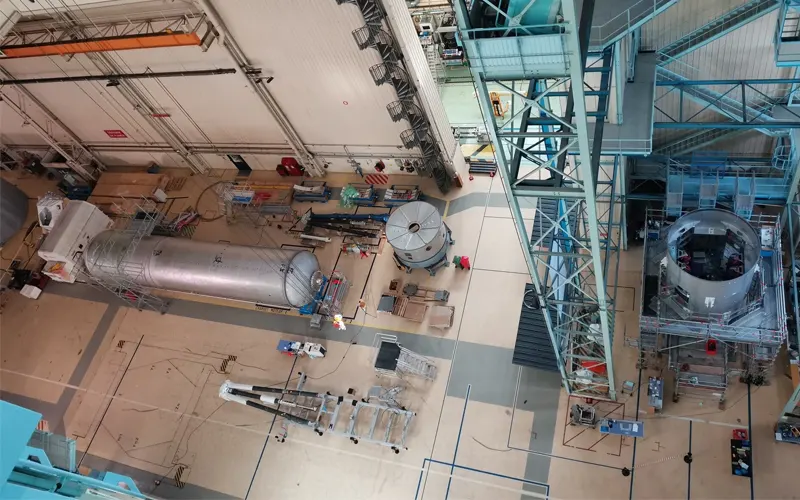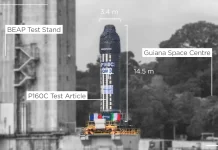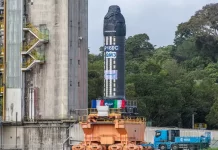
The European Space Agency’s Themis programme has suffered another setback, with the inaugural flight of its reusable booster demonstrator now all but certain to slip to 2026.
Adopted by ESA member states in November 2019, the Themis programme was created to develop and mature key technologies for future reusable rocket stages. At the time of its adoption, an initial hop test of the first Themis demonstrator was expected to take place in 2022.
The project is being led by ArianeGroup, which recently received an additional €230 million in funding from ESA member states for the development of the Themis One-Engine Evolution (T1E) variant, continued development of the Prometheus rocket engine, and upgrades to a test stand in Vernon. In addition to support from ESA, funding for the development of Themis is also being provided by the European Union through its SALTO programme.
In April 2025, a SALTO project update outlined a number of key milestones expected to be completed in 2025, including final integration and control tests and the transfer of the T1H demonstrator to the launch pad. Once completed, the first Themis launch campaign would commence, a milestone that was expected before the end of the year. This does, however, now appear unlikely.
According to sources close to the programme who spoke to European Spaceflight on condition of anonymity, the first integration tests at the Esrange Space Center in Sweden are almost certain to slip from late 2025 to 2026. However, even if the test does occur at the end of 2025, there would be little time left to conduct an initial hop test before the end of the year. As a result, the first test flight of Themis is now almost certain to slip into early 2026 at the earliest.
While another delay to the start of the first Themis launch campaign is frustrating, the downstream consequences are likely to be minimal. The only direct application of the technology developed under the Themis programme is the first stage of the two-stage MaiaSpace rocket. However, the company appears to be continuing the development of its first stage largely independently of Themis, meaning the latest delay is unlikely to affect its progress.




